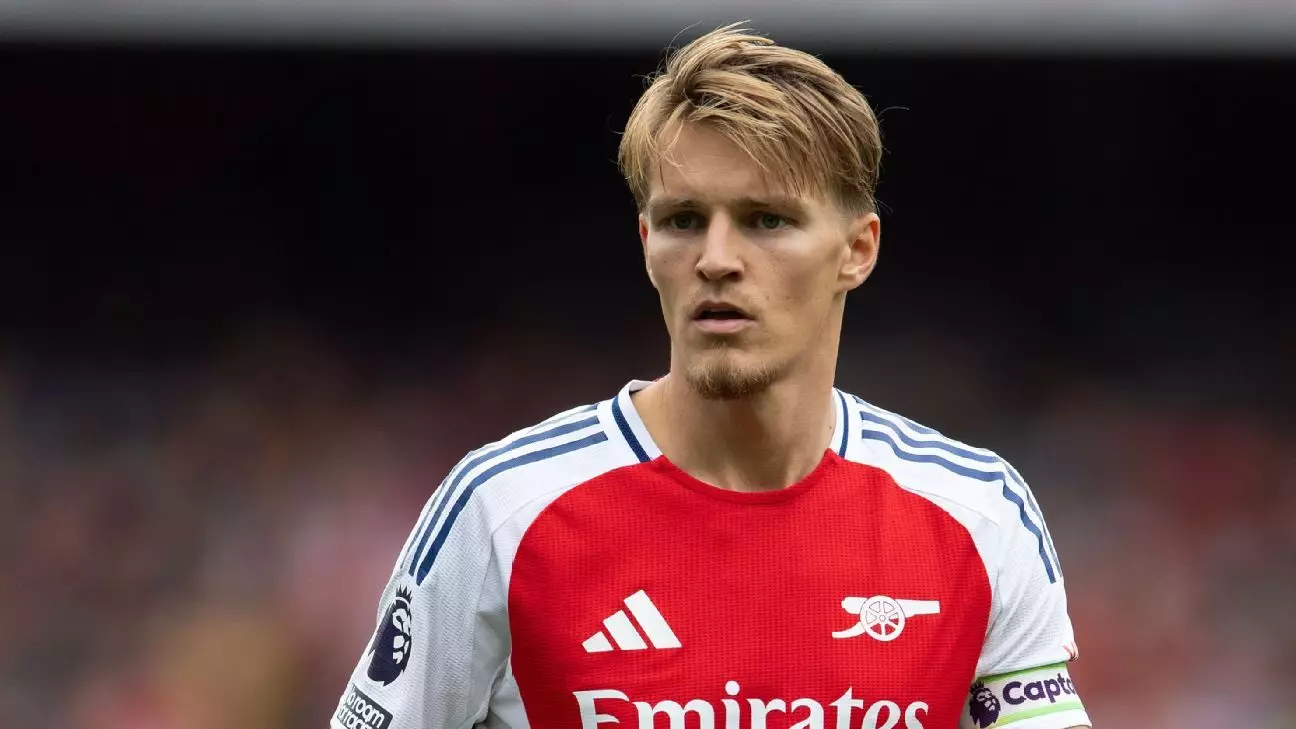Arsenal Football Club is grappling with a significant injury crisis as they head into an important stretch of the season. Central to this issue is their captain, Martin Ødegaard, who is expected to miss several weeks due to an ankle injury sustained while playing for Norway in a recent UEFA Nations League match. This setback not only raises concerns for the team’s immediate performance but also highlights the fragility that can accompany a competitive football calendar. Manager Mikel Arteta has confirmed Ødegaard’s absence will extend beyond the October international break, leaving Arsenal without their key playmaker for crucial fixtures.
Losing Ødegaard, a pivotal figure in Arsenal’s midfield, means the team will have to reconfigure their strategy. Arteta’s side faces a series of demanding matches, including encounters against teams like Paris Saint-Germain and Leicester City. Without Ødegaard’s creativity and leadership on the pitch, Arsenal might struggle to maintain consistency and fluidity in their game. Furthermore, the absence of their captain could demoralize the players, who often rely on his presence for inspiration. The challenge ahead isn’t just about filling a positional gap; it’s about shoring up team morale and adaptability in the face of significant loss.
Additional Injury Concerns
Compounding Arsenal’s troubles is the uncertainty surrounding several other players. Defender Oleksandr Zinchenko is also sidelined due to a calf injury, while Ben White is managing an unspecified fitness concern. This raises questions about the depth of Arsenal’s squad and whether they can overcome the loss of multiple key players simultaneously. Furthermore, with significant injuries affecting players like Gabriel Martinelli, Takehiro Tomiyasu, and even Mikel Merino, the Gunners are in dire need of effective squad rotation and tactical adjustments to cope with a depleted roster.
In light of these injuries, Arteta may be forced to rely on less experienced players, such as 16-year-old Jack Porter, to fill in during upcoming fixtures. This situation presents both a risk and an opportunity; while inexperienced players might struggle under pressure, they can also embrace the chance to shine on a big stage. The coach’s decision-making will be crucial as he assesses the readiness of his squad and navigates through this challenging period. Balancing the development of young talent with the need for immediate results will be a critical task for Arteta going forward.
As Arsenal prepares to face a challenging run of matches, the impact of the current injury crisis cannot be overlooked. The absence of Ødegaard not only affects the team’s performance on the field but also tests their mental resilience and strategic depth. With crucial fixtures approaching, the decisions made by Mikel Arteta in the coming weeks will likely define the team’s trajectory and possibly their ambitions this season. How effectively Arsenal navigates the injury landscape could very well determine their competitiveness in both domestic and European circuits.

